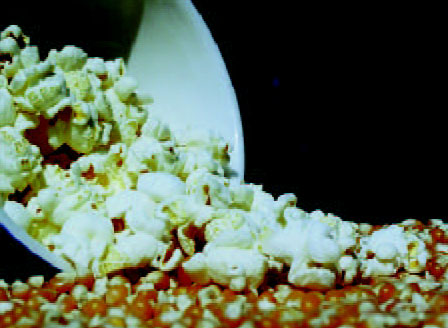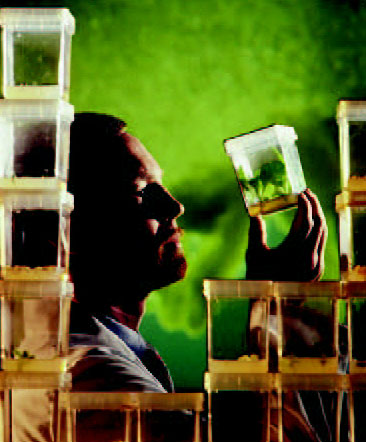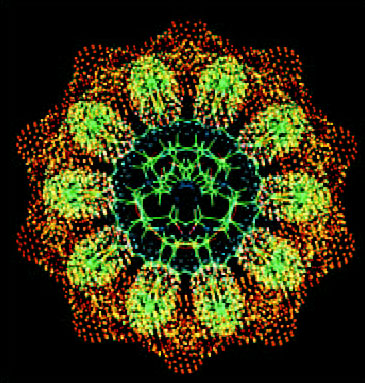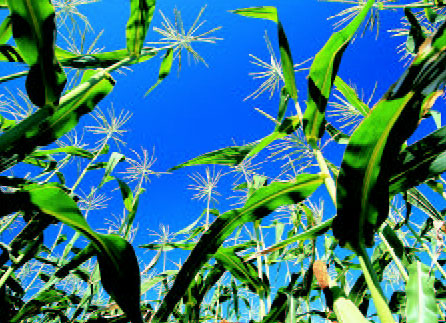|
Food Biotechnology | Biotech Benefits | Further Reading
|

|
Food biotechnology is a process scientists use to enhance the production, nutritional value, safety, and taste of foods. It can also benefit the environment by improving crops so that they need fewer pesticides. The concept is not new: For centuries farmers have selectively bred plants to pass on desirable qualities. |
|
For example, our ancestors began by replanting only corn seeds from the highest yielding and best tasting corn they grew each year. This process selected desirable genes and fixed them by growing the seeds of the selected crop year after year. The result: the golden, deliciously sweet product we now enjoy. |
|

|
Modern food biotechnology is a refined version of this same process. Today, scientists obtain desired traits by adding or removing plant genes. (Genes are the hereditary units that form the “blueprint” of all living beings. They determine characteristics such as the number of peas in a pod, the color of the flowers, and so on.) For example, scientists can remove a gene for a trait such as dark kernels from one plant and add it to another plant’s genetic makeup. |
|
This process is called “genetic engineering” or “recombinant DNA technology.” It yields foods that are flavorful, contain more vitamins and minerals, and absorb less fat when cooked, and gives us crops that are more resistant to pests and insects.
Food biotechnology holds great promise for the future. Soon, fruits and vegetables may be made to resist drought. We may remove allergens from foods such as nuts. Scientists may develop plants that absorb nitrogen more efficiently and need less fertilizer. The benefits are nearly limitless! |
| Biotech Benefits |
- Nutrition—Scientists can develop foods with vitamin and mineral fortification. “Golden rice” was developed through food biotechnology. Golden rice can help deliver nutrients the body converts to Vitamin A—much needed in the developing world.
- Safety—The U.S. Food and Drug Administration, U.S. Department of Agriculture, Environmental Protection Agency, American Medical Association, and American Dietetic Association agree that foods from biotechnology are safe, and may become even safer for the environment with use of fewer pesticides.
|
- Bounty—With the world population on the rise, we need an ample food supply. Scientists are developing crops that can thrive in harsh climates in which current non- biotech crops cannot. This can bring more land into cultivation, which in turn will lead to the production of more food to feed an increasing world population.
The Food and Agriculture Organization of the United Nations says “… biotechnology can be of significant assistance in meeting the needs of an expanding and increasingly urbanized population… .” |
 |
- Natural Protection from Pests—Fruits and vegetables can be modified to naturally resist herbicides and destructive insects. As a result, farmers are now using fewer pesticides and herbicides.
- Cost Savings—When farmers spend less money on pesticides and herbicides, you can pay less at the grocery.
|
| Further Reading |
Biotechnology FAQs (U.S. Department of Agriculture):
http://www.aphis.usda.gov/biotechnology/faqs.html |
|
A Biotech Timeline (Monsanto):
http://www.biotechbasics.com/timeline.html
Food Safety and Legislation (National Food Processors Association):
www.nfpa-food.org |
 |
Developed by the National Food Processors Association • www.nfpa-food.org |

